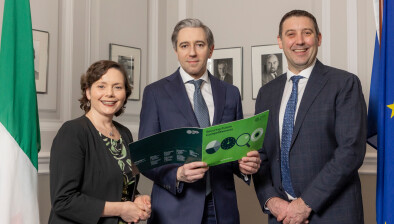Court of Appeal: Company wrongly pursued for €10.2m VAT bill loses claim for damages
A company that was wrongly pursued for a €10.2 million VAT bill due to a “fundamental error” in the interpretation of the VAT Regulations of 1979 (as amended) has lost its appeal against the High Court’s rejection of its claim for damages for malicious abuse of the civil process.

About this case:
- Court:Court of Appeal
- Judge:Ms Justice Mary C. Irvine
Finding that the evidence overwhelmingly favoured the finding that it was reasonable for the State body to issue the VAT proceedings, Ms Justice Mary Irvine said it would have been perverse for the High Court judge to have reached any other conclusion.
Background
In 2000, the Campus and Stadium Ireland Development Limited (CSID) was established by the Government to develop a sports campus at Abbotstown, Co Meath.
In April 2003, CSID granted a thirty-year lease of the National Aquatic Centre at Abbotstown to Dublin Waterworld Limited (DWW). Pursuant to Clause 4.30 of the lease, DWW covenanted to pay all VAT payable on the grant of the lease to CSID. In May 2003, CSID issued an invoice to DWW claiming €10.2m in respect of VAT, stating that this had been calculated in accordance with Regulation 19 of the VAT Regulations of 1979 (SI No 63/79, as amended by SI 219/02).
DWW considered that CSID was not entitled to claim VAT on the lease and refused to discharge the invoice. In April 2005, CSID issued proceedings in the High Court which included a claim for the €10.2m.
Fundamental error
The VAT element of the proceedings were referred to arbitration, and the arbitrator decided that CSID was entitled to charge the VAT on the lease. The High Court upheld the arbitrator’s decision; however, this was overturned by the Supreme Court.
The Supreme Court held that the arbitrator had made a fundamental error in interpreting Regulation 19 of the VAT Regulations of 1979 (as amended).
Key to whether or not VAT was chargeable on a long lease was the “open market price” of the leasehold interest and in particular Regulation 19 which provides two methods by which the open market price may be calculated “in the absence of other evidence of the amount of that price”
In order for a lessor to claim VAT on a long lease, it had to be in a position to establish that the value of its interest in the lease was equal to or greater than the cost of acquiring or developing the property the subject matter of the lease (see s. 4(3A) of the VAT Act 1972, as amended by s. 99 of the Finance Act 2002).
Thus, in the circumstances of the present case VAT could not have been charged unless CSID was in a position to show that the open market price of the lease was above the €63m development cost.
Notably, in October 2002, CSID had received a report from the Valuation Office stating that the estimated open market price of the lease for VAT purposes was €35,054,725.
Instead of relying upon the open market price of the lease set out in the Valuation Office Report, as it was obliged to do, CSID had impermissibly calculated the value of the lease by using the rent formula method. It had taken three quarters of the unencumbered rent (€2,532,000) and multiplied it by the number of years of the lease i.e. thirty years – resulting in an open market price for the lease of €75,960,000, vatable at 13.5%.
Claim for damages
DWW claimed that CSID had actual knowledge of the fact that its claim for VAT was unlawful, being contrary to the clear wording of Regulation 19, and maintained that the primary litigation against DWW was commenced without reasonable or probable cause.
Pursuant to the National Sports Campus Development Authority Act 2006, CSID was dissolved and replaced by the National Sports Campus Development Authority (NSCDA).
In the High Court in May 2017, Mr Justice Michael Twomey dismissed Dublin Waterworld’s claim against NSCDA for, inter alia, damages for the tort of malicious abuse of the civil process in pursuing an action to recover VAT in respect of the lease.
Delivering the unanimous judgment of the Court of Appeal, Ms Justice Irvine rejected DWW’s claim on the basis that it had not established that CSID did not have reasonable and probable cause to issue the proceedings. Ms Justice Irvine was satisfied that Mr Justice Twomey had not reached his decision “based on an incomplete and erroneous assessment of the evidence”, in particular, he did not take an impermissible approach to documentation concerning Regulation 19 (i) from the Revenue Commissioners evidencing its interpretation and practice, and (ii) highlighting the opinion of tax professionals at the time.
Ms Justice Irvine said unless it could be shown that a trial judge’s failure to address an issue gravely casts in doubt the validity of their findings, an appellate court should not interfere with the judgment. As such, Ms Justice Irvine was satisfied that Mr Justice Twomey’s failure to “address with particularity DWW’s submission that the deliberate withholding of the Valuation Office Report from DWW until after the commencement of the within proceedings does not cast in doubt the judgment”.
Ms Justice Irvine was also satisfied that Mr Justice Twomey’s findings of fact that CSID had been advised by its tax advisors and believed when it issued the VAT proceedings that its claim was lawful was supported by credible evidence, and those findings were in large part made on foot of Mr Justice Twomey’s assessment of the credibility of relevant witnesses or on the basis of unchallenged witness statements – therefore they were protected by Hay v O’Grady principles.
Objectively assessed, Ms Justice Irvine said the evidence overwhelmingly favoured the conclusion that it was reasonable for CSID to have considered it had reasonable and probable cause to issue the VAT proceedings – and it would have been perverse had Mr Justice Twomey reached any other conclusion.
- by Seosamh Gráinséir for Irish Legal News












